Welcome to the second URRpdate for the 0.10 release coming at the end of December! Quite a bit has been added in the last few weeks, so let’s get started:
Banking
To begin with, you are now able to deposit any amount of your money into the bank in a given civilization, which will then – slowly – accumulate income over time. Right now the system will be that you can deposit any currency into a bank, but the currency of that bank’s home nation will accrue income much faster than other currencies. I’ve been doing a bit of experimenting with compound interest calculations, and thinking about how fast the player moves around the map, how fast in-game time passes, all of these sorts of things, and I think an interest rate of around 1-1.5% per month for home currency will be appropriate; it’s obviously high (on a level we could only dream of in the real world under normal circumstances!) but there will be many demands on the player’s expenses, and banks in the URR world are local, not global (so you can only get your cash out in the right nation), and it will be a strategic choice to sacrifice the immediate use of your money for later income further down the line. This will obviously be something to playtest, but for now I’m adding the ability to deposit money, of any currency, and a 1-1.5% interest rate monthly for the home currency (and around a 0.5% interest rate for non-native currencies) in banks. All of this should – in time – add another nice strategic layer to the game world and the player’s actions, purchases, movements, and so forth. As such, I’ve now built the interface here for the player to both deposit and withdraw coins in various volumes, and to cycle through coins. You’ll also notice on the left-hand side of the below screenshot that each bank has a procedurally generated “special offer” which takes the form of “Do X to get Y” – one example is shown below. These will have quite significant benefits (this one, for example, would allow the player meeting the condition to buy any five items in that city’s shops!) and so I’m hoping these will also make interesting strategic considerations as well.
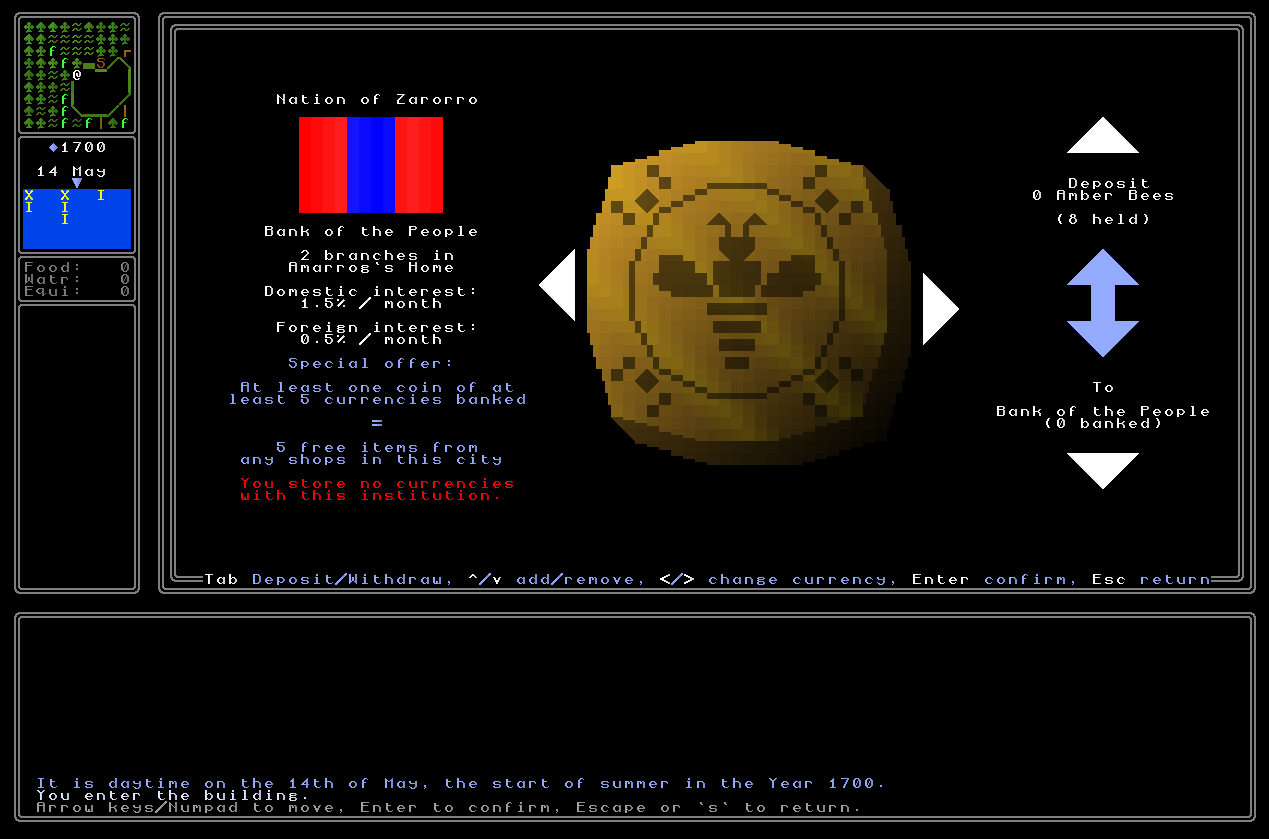
Holy Books and Ingots
Despite all the time and effort I put into working on the generation of holy books for religions as part of 0.9, I realise now that they (generally) don’t actually spawn at present! It is possible for a holy book to spawn in a “general store” but the odds are extremely low, given that anything can spawn in those stores and books are only one category, and then even within “books” there are many categories of which holy books are only one. I’ve therefore taken it upon myself to get holy books spawning now in religious buildings, where they appear on tables and sometimes appear having been left on chairs by previous worshippers. In 0.10, therefore, a few holy books will now appear in their appropriate religious buildings, which the player will be able to look at. In the future, of course, when systems for handling stealing and reputation are implemented, you might be able to grab them with reckless abandon, but now they are just there to look at. This is also the case for ingots, where I coded the graphics and the item information for them but never actually got around to putting them in the bank vaults in banks, mints, etc. They can therefore now be found in both – again, they cannot be picked up yet, but they just give a little more detail, and soon you’ll be able to do a bit more with them than you can right now. Holy books and ingots can therefore now both be found in their sensible in-game locations, and the effort I put in to generating their images is no longer going to waste!
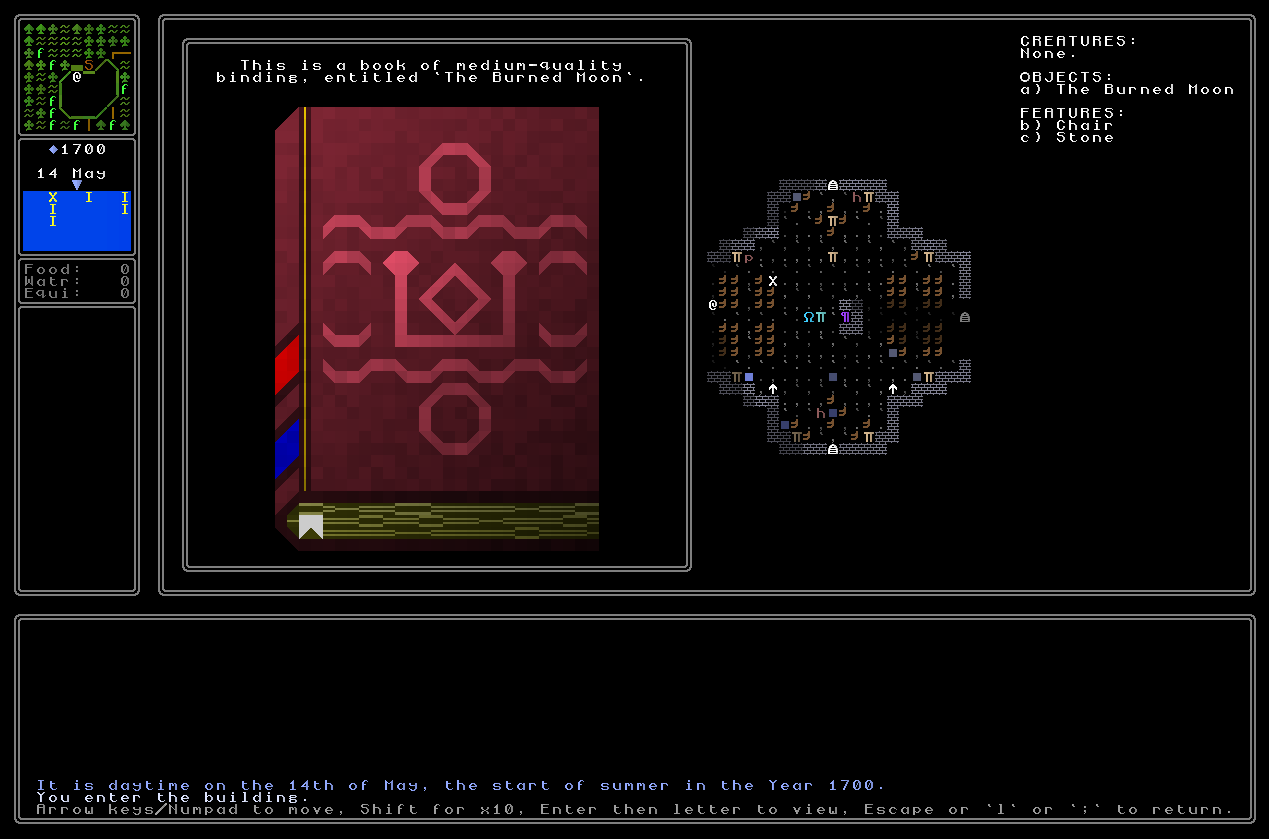
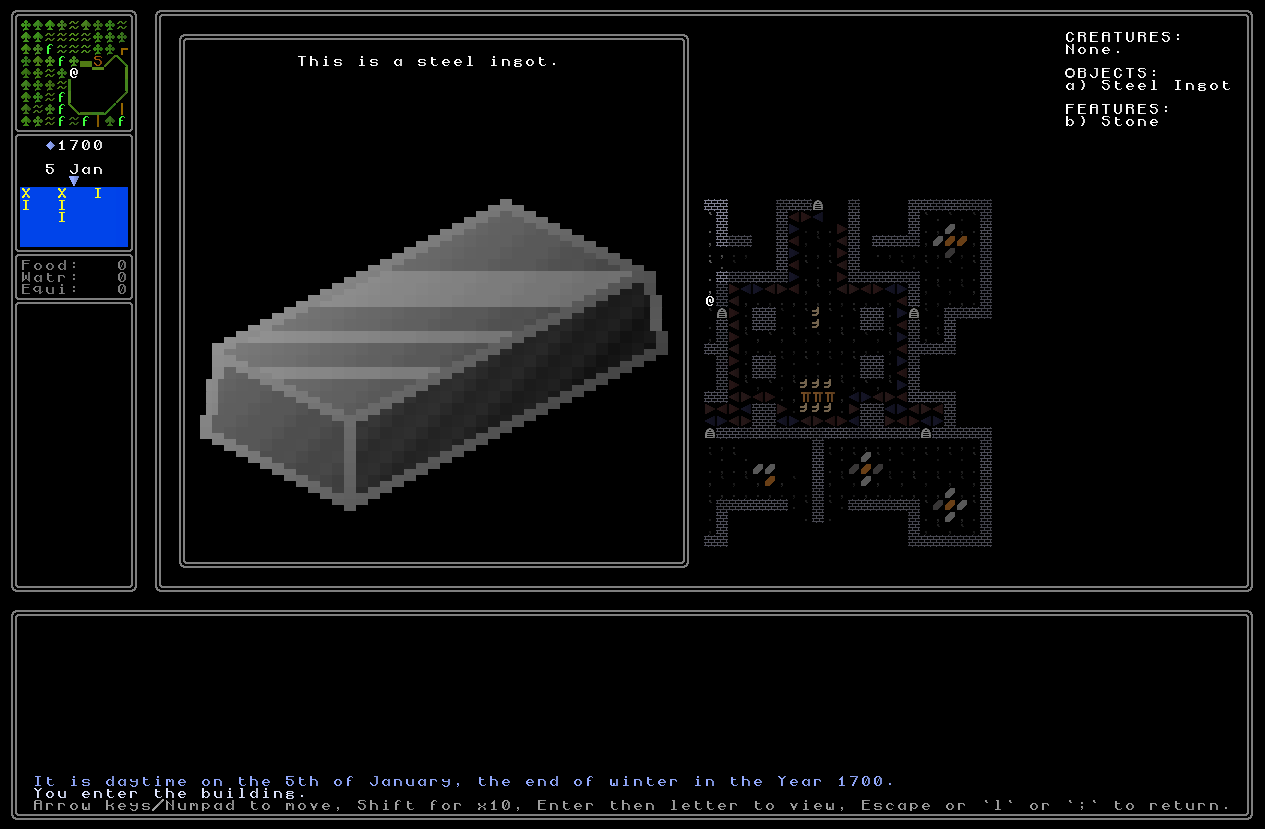
Relic generation
In the existing version relics are hidden under-the-hood and never really appear, even though you can see reliquaries in religious buildings. The current relic generator is very generic and although it can produce a huge number, they tend to be of a few standard sorts, e.g. a bone of some description, a weapon of some description, and so on. Given that in a future version relics will be generated as in-game items that might be important for solving clues (or might just be worth a great deal of money, of course, or might be worth something else if given to the right person…) I decided to go back and just take a couple of hours to update the generator. There are a number of religion “archetypes” in the game that at least partly determine some of the traits of the religion and what its altars look like, and I’ve come up with over twenty different relic archetypes, such that now every religion will have a unique category / “type” of relic. For example, one religion’s relics might all be golden statues of animals; another religion’s relics might, indeed, all be bones of ancient saints; another religion’s relics might be mysterious metal cube etched with eldritch designs; another religion’s relics might be sacred feathers from ancient birds; or whatever. The game therefore now assigns a relic type to every religion, and generates a bunch of relics for that religion to have – one per normal religious building, one per cathedral, and a number that are perhaps lost, or buried, or in private hands, etc. This doesn’t do a great deal right now, but is setting things up nicely for later.
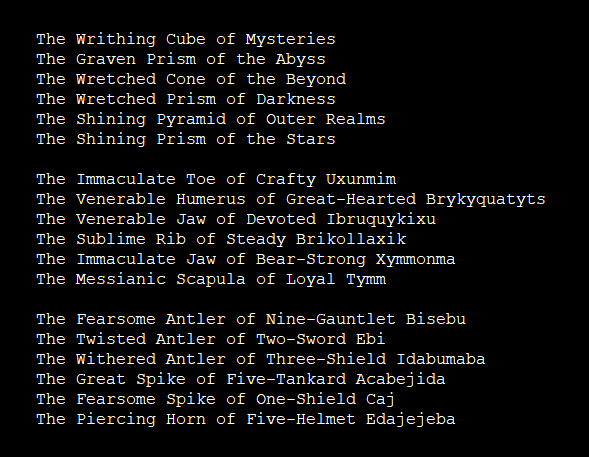
Building memory
One of the problems with URR has always been speed. I don’t claim to be the most technically skilled programmer on the planet, but I have been continually improving the game’s speed as much as I can. A significant improvement took place in 0.9 where I upgraded the rendering engine for the game’s world (particularly the larger outdoor areas rather than the smaller indoor areas) to the point where it was around 40-50% faster than it had previously been. I’m working on further upgrades of this technical sort for the future, mark my words, but I also want to speed up the player’s ability to navigate the world. One place where this has long stood out to me is in getting back to buildings; when you enter a district or a town you have already visited, you always start at the edge of that map grid and have to walk, again, into the area in order to find the shop or tavern or whatever it might be. Well: no more! The game now keeps track of every structure you’ve seen in a map grid, and from then on, whenever you return to that grid, the game now lists all the structures you know, and you can so straight there instead of having to walk the whole way through the grid again! After some playing with this it is clear that this is frankly a huge time-saver and really makes the game feel far faster to navigate and get around. I intend to later add the ability to add your own “checkpoints” for this system – e.g. if you know there’s something important hidden in a particular house in a particular district, you can put in a checkpoint outside that house, and then later when you return to that map grid, the checkpoint will be another option you can go straight to instead of walking back through it to get there. For now, though, I’m really happy with this addition, and it really speeds things up an astonishing amount, and streamlines the player getting things done to a huge degree. Without exaggerating I’d say it speeds up the time going from a bank to a shop by around 90% (assuming you already have both the locations), if not more – this is a huge improvement.
This is pretty easy and obvious for buildings, but more complex for things like parks, memorials, open-air markets, and the like. For these more informal areas, the game now identifies particular areas and ways of facing that would be good to “start” at a park, for instance – maybe on the right-hand side, facing left, and looking over a bridge – and then when you fast travel to a park, a memorial, or other comparatively amorphous outdoor areas, the game looks through these saved starting point, picks one, and puts the player there.
This has actually been the main thing I’ve been working on in the last couple of weeks since the game needs to be able to handle all kinds of buildings, in all kinds of areas, and to place you in logical locations for these buildings, and to accurately deduce how many steps should be iterated as you fast travel to them, etc etc – but it’s now done, and my goodness, it speeds the game up. This is a really fantastic addition in terms of what people these days like to call “quality of life” in game design, and I’m so glad to finally get it in there.
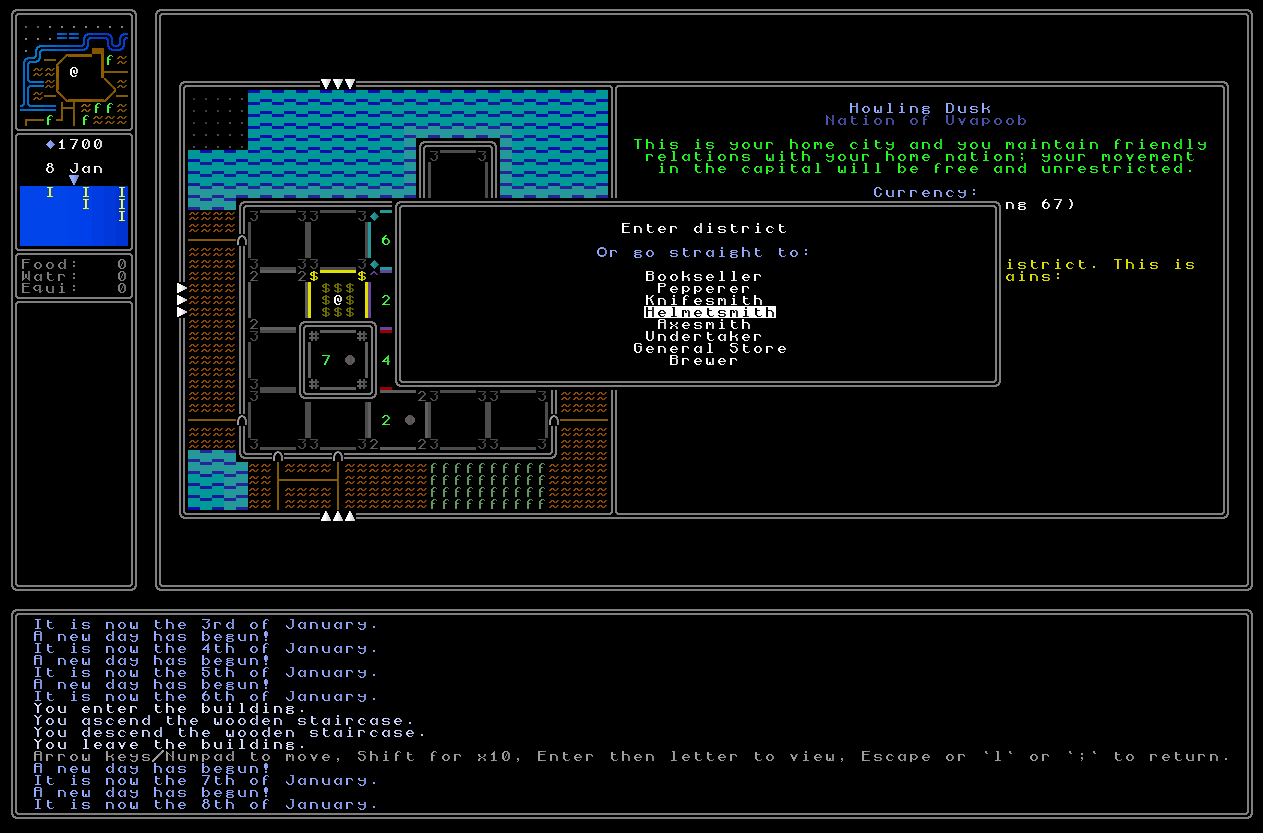
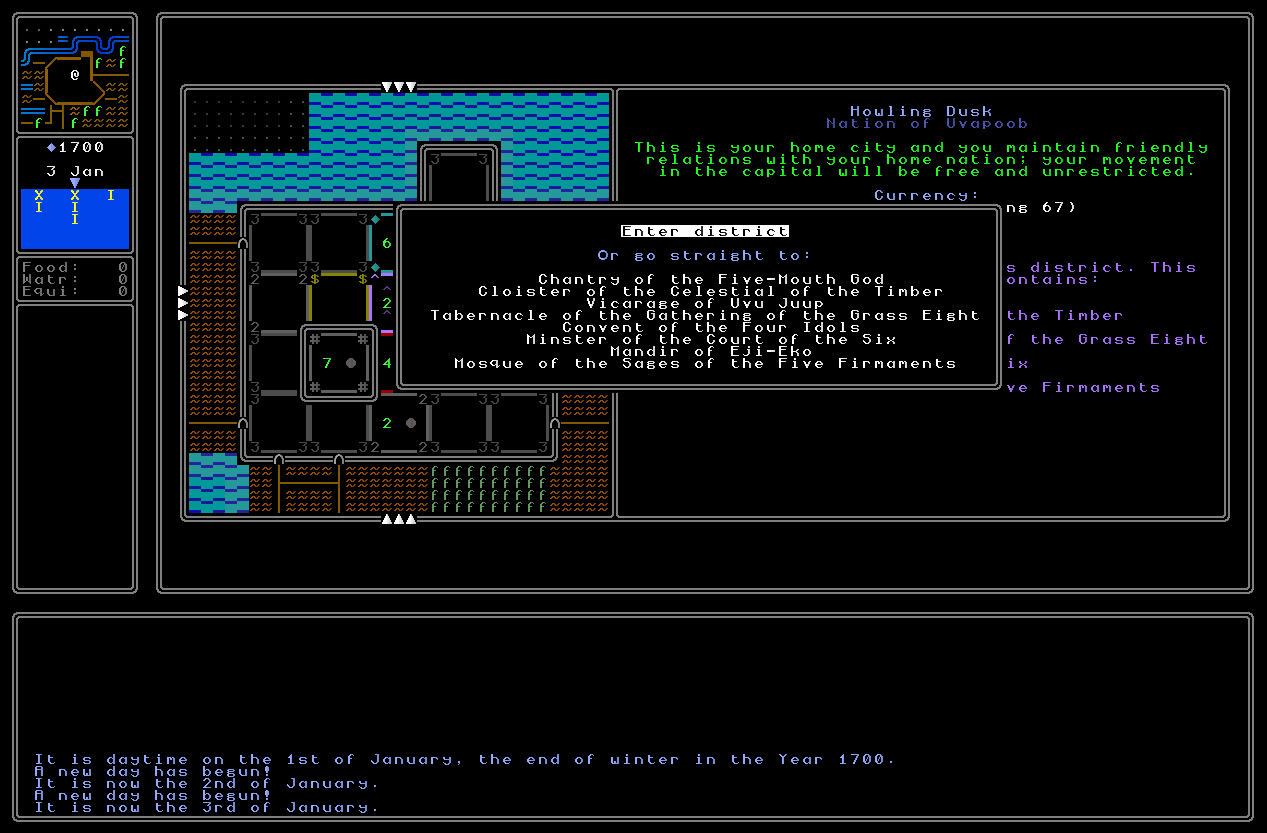
Bug fixes / polishes / etc
- Resolved a problem where buying some kinds of rifle balls / pistol balls would lead to a crash because the game couldn’t figure out what to call them.
- Noticed that weapon prices were not being appropriately modified based on their quality level (low/medium/high) and made it so that they will be.
- Fixed a crash bug with a certain (rare) class of book being unable to figure out what book cover it should be showing on screen.
- Added metaquestions for “What do you think of [plant]?” and “What do you think of [animal]?”, which also appropriately populate themselves with responses based on what the player knows about.
- Going from your inventory into a specific level of your inventory (e.g. “weapons” or “maps” or whatever) now correctly darkens the background inventory image.
- Fixed yet another problem with mines in the encyclopedia crashing the game sometimes – this should really, really, be resolved now.
- Using the keypad’s ‘5’ instead of ‘Enter’ no long causes a crash on the world map (!!!).
- Using the keypad’s ‘5’ now works fine for going up and down stairs, just like ‘Enter’ does (alongside the usual ‘<‘ and ‘>’, of course).
- Fixed an issue with some types of history books not correctly listing the name of the thing they are recording the history of, but merely the type of thing, so one got “Arena: A History” instead of “Redtooth Arena: A History”, or whatever it might be. These books now have the right titles.
- Fixed a far less common issue equivalent to the one above but for prisons, rather than arenas.
Next?
One of the problems with creating this kind of world is always the gaps. One creates a world map and thinks “but where are all the settlements?”; one creates settlements and thinks “where are all the people?”; one creates people and thinks “what can I actually do with them?”; and so on. This has always been a struggle for me psychologically as well, always feeling like new additions only suggest future additions, instead than standing on their own two feet. With that said, though, with this 0.10 release I’m finding a lot of satisfaction in going back and closing a lot of the “gaps” in the game world. The world is now already looking more polished, more complete, with fewer strange “gaps” in its nature, and with far more ease of navigating, exploring, seeing things, and just generally getting stuff done.
As such, for the next week or two I’ll be working on more of these improvements; more closing of the gaps; more polishes and improvements and optimisations; and generally just continuing to polish and more fully flesh-out what’s already there. Expect another update, all being well, hopefully some time in the middle of November!
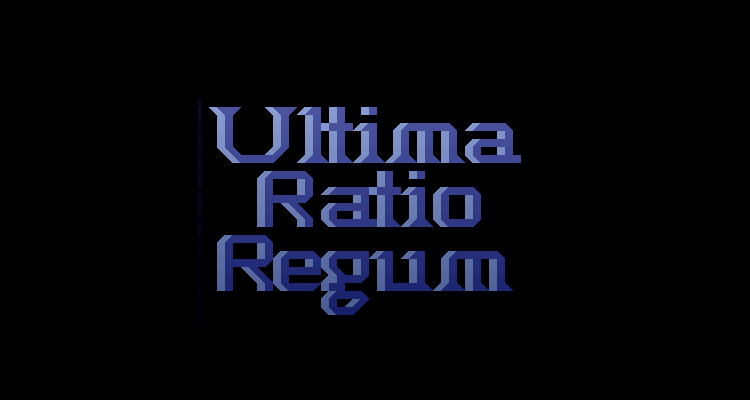
Hi Dr Johnson
Great-looking update, glad to see those holes being filled-in as you mentioned.
An idea that struck me for holy books is that of their “common-ness” depending on the religiosity and traits of a nation, so a theocracy law-state might have holy books spawning in temples, an unorganized religion might have them in noble houses, et cetera.
The district navigation looks excellent too! Wandering through a strange bustling city is one thing, doing it five times in a row to do your pre-trip groceries less so
Thanks Dorsi! I think that’s a lovely idea, yes, I’ll definitely get holy books spawning in other places too. And yeah, it’s actually astounding how much this speeds everything up. Hopefully some other speed optimisations are coming in this release as well…
Fantastic that you are still working on this my friend
Thanks Jeffs! Always trying to make things a bit more regular and consistent, but even without that, I’m dedicated to the annual release model now 🙂
This game just keeps getting better. Not understated when I say I appreciate all the work you’ve put into this. Wishes of good health and few bugs. 😉
Thanks William, that’s super kind of you! It is much appreciated 🙂